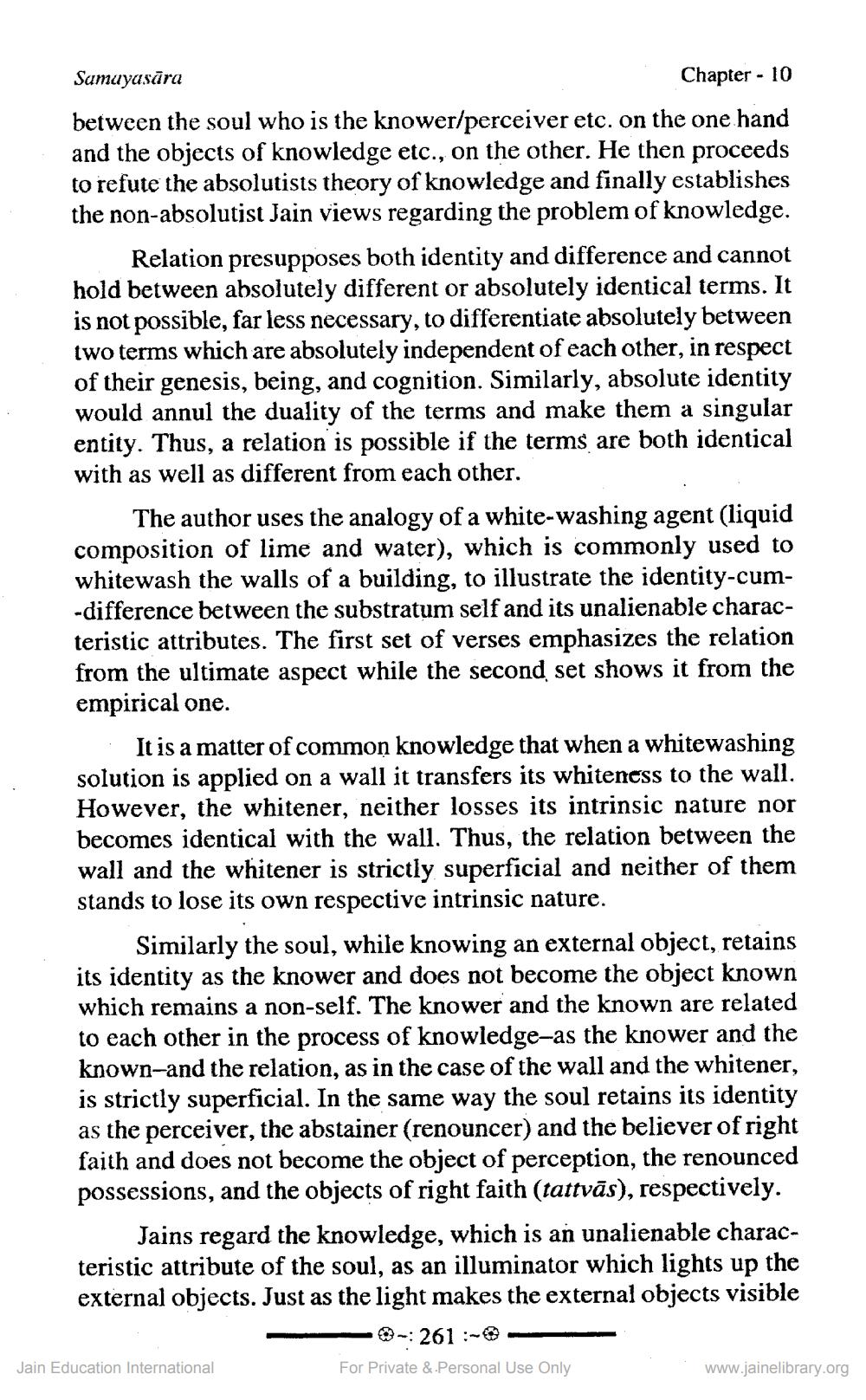________________
Samuyasāra
Chapter - 10 between the soul who is the knower/perceiver etc. on the one hand and the objects of knowledge etc., on the other. He then proceeds to refute the absolutists theory of knowledge and finally establishes the non-absolutist Jain views regarding the problem of knowledge.
Relation presupposes both identity and difference and cannot hold between absolutely different or absolutely identical terms. It is not possible, far less necessary, to differentiate absolutely between two terms which are absolutely independent of each other, in respect of their genesis, being, and cognition. Similarly, absolute identity would annul the duality of the terms and make them a singular entity. Thus, a relation is possible if the terms are both identical with as well as different from each other.
The author uses the analogy of a white-washing agent (liquid composition of lime and water), which is commonly used to whitewash the walls of a building, to illustrate the identity-cum-difference between the substratum self and its unalienable characteristic attributes. The first set of verses emphasizes the relation from the ultimate aspect while the second set shows it from the empirical one.
It is a matter of common knowledge that when a whitewashing solution is applied on a wall it transfers its whiteness to the wall. However, the whitener, neither losses its intrinsic nature nor becomes identical with the wall. Thus, the relation between the wall and the whitener is strictly superficial and neither of them stands to lose its own respective intrinsic nature.
Similarly the soul, while knowing an external object, retains its identity as the knower and does not become the object known which remains a non-self. The knower and the known are related to each other in the process of knowledge-as the knower and the known and the relation, as in the case of the wall and the whitener, is strictly superficial. In the same way the soul retains its identity as the perceiver, the abstainer (renouncer) and the believer of right faith and does not become the object of perception, the renounced possessions, and the objects of right faith (tattvās), respectively.
Jains regard the knowledge, which is an unalienable characteristic attribute of the soul, as an illuminator which lights up the external objects. Just as the light makes the external objects visible
_ *-:261 :-*Jain Education International For Private & Personal Use Only
www.jainelibrary.org




